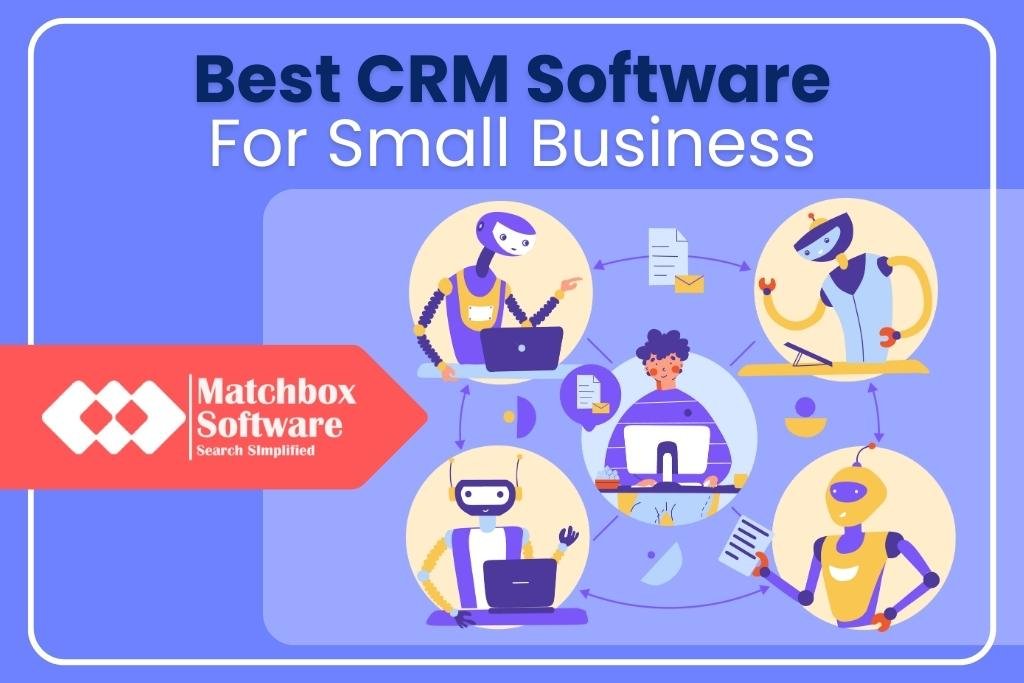The Ultimate Guide to Choose the Best CRM Software for Small Businesses

Small businesses in today’s competitive business world are looking for effective ways to improve customer relationships, streamline processes, and widen their horizons. Customer Relationship Management (CRM) software can be a game changer in this situation. Consider it your all-in-one tool for handling customer information, interactions, and sales pipelines.
CRM software serves as your customer data’s superhero headquarters. It centralises everything, making it simple to organise, track, and analyse customer interactions throughout their journey with your company.
Defining Your CRM Requirements for Optimal Success
It’s critical to specify your needs precisely before starting your CRM search. Which major problems do you want a CRM system to solve? What are your company’s objectives, and how do you think CRM software will help you achieve them?
Determine the essential features you require first, such as email integration, lead tracking, contact management, sales forecasting, and reporting features. Take into account your team size, spending limit, and any particular industry requirements. By outlining your requirements up front, you can reduce the number of possibilities and select a CRM solution that complements your corporate objectives.
Exploring the CRM Landscape: A Comprehensive Overview for Effective Navigation
The CRM landscape is large and dynamic, offering a variety of solutions appropriate for specific business needs and industry demands. A brief overview of the different types of CRM systems available is provided below:
- Operational CRM: Operational CRM’s primary objective is to streamline and enhance routine customer interactions, such as marketing automation, customer service management, and sales force automation.
- Analytical CRM: Make use of data analytics to uncover sales trends, understand customer behaviour, and enhance decision-making.
- Collaborative CRM: Enable smooth customer experiences by facilitating departmental collaboration and information sharing.
Evaluating CRM Solutions for Optimal Fit and Functionality
After determining your requirements and researching the CRM market, it’s time to assess your options. Here are some important factors to consider:
- Ease of use and user interface: The CRM system should be easy to use and basic in order to guarantee that your team adopts it without any difficulty.
- Scalability and flexibility: Your CRM should be able to expand with your business and adapt to your changing needs.
- Integration capabilities: The CRM should easily interface with the systems and tools you currently use for business, including accounting software, email clients, and marketing automation tools.
- Customer support: To help you with any technical problems or onboarding difficulties, pick a provider that provides thorough and prompt customer support.
A Strategic Approach to Testing CRM Solutions
It is strongly advised to take advantage of the free trials or demos that many CRM providers offer before making a final decision. You can test the software’s functionality, user interface, and overall compatibility for your business needs through this hands-on experience.
Trending CRM Solutions Right Now: An Overview of the Industry
The CRM industry is always changing, with new products entering the market and established ones modifying to follow the newest trends. The following are a handful of the most well-liked and respected CRM programmes on the market right now:
- HubSpot : A full of features CRM platform with a variety of functions, such as marketing automation, sales pipeline management, and contact management.
- Zoho CRM : Another feature-rich cloud-based CRM platform is called Zoho CRM. Because of its affordable price and ease of use, small and medium-sized businesses (SMBs) frequently choose it. Moreover, Zoho CRM interfaces with several other Zoho programmes, including Zoho Mail and Zoho Projects.
- Salesforce : Salesforce is a cloud-based Customer Relationship Management (CRM) platform that assists businesses in managing and analysing customer interactions across the entire lifecycle. It offers a comprehensive set of tools for managing contacts and leads, sales automation, customer service, marketing automation, and analytics.
Conclusion: Embracing CRM for Small Business Success
The ability of your small business to manage customer relationships, generate sales, and achieve long-term growth can be significantly boosted by investing in the appropriate CRM software. You can make an informed choice that supports your business objectives and helps you succeed by thoroughly analysing your needs, investigating your options, and utilising trials or demos.

